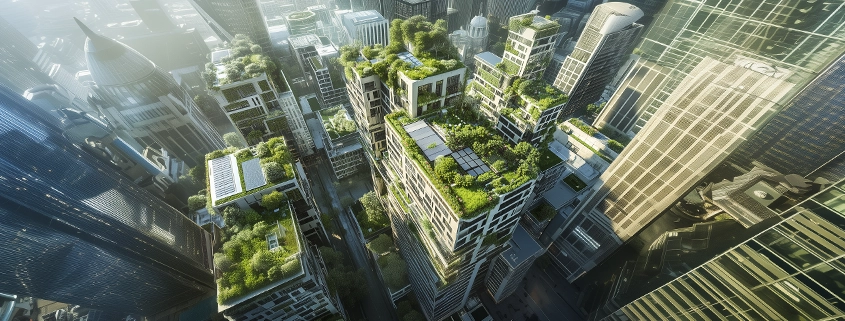As a specialist designer and supplier to the public and commercial water heating market, Adveco is deeply involved in addressing the issues, exceeding legislation and advancing technology to take buildings toward net zero status nationwide.
In the first of an irregular series, we will aim to answer some of the most frequently asked and more interesting questions on the nature of water heating and sustainable development…
What does Adveco do?
Adveco is the UK’s specialist provider of low-carbon hot water systems to the building services industry. The company designs, supplies, commissions and provides manufacturer-grade service of domestic hot water (DWH) systems for commercial and public sector buildings.
For more than 50 years, Adveco has led innovation in gas water heating and, more recently, in award-winning low-carbon applications which leverage heat pumps, solar thermal and electric water heating to help support net zero strategies.
What current trends are you seeing in the commercial water heating market?
Although demand is slightly decreasing, gas-fired systems remain a major function throughout the retrofit space. Lack of funding, uncertainty over new technologies and the relative cost of gas versus electricity means we still see a desire for like-for-like replacement, especially where there is high daily DHW demand.
For new builds, there are no new gas connections, so the trend is all about electric and heat pumps to help the building get through Part L. The easiest perceived way to achieve this is to select CO₂ heat pumps and add some photovoltaics (PV) for low-cost electrical energy. The problem is that consultants/contractors are struggling to make this work when keeping return temperatures below 30 degrees. Should the return temperature get too high, the coefficient of performance (COP) drops exponentially, and the unit eventually just shuts off. PV is also far less efficient when it comes to heating water, requiring a greater area of collector at a much higher cost than solar thermal, a technology which, unlike PV, is also intrinsically safe.
This is driving the popularity of R290 heat pump systems. But there remain serious questions, as raised by BESA, over the use of larger amounts of propane required in heat pumps, their safe storage, transportation, and distance from potential ignition sources should there be a leak. This sets concerns over where current heat pump technology for commercial DHW projects needs to go, especially with the expected EU ban on R32 and other HFC-based refrigerants.
From Adveco’s perspective, we will continue to advocate hybrid electric/R32 heat pump systems for the time being and recommend solar thermal wherever possible as the best means for reducing energy, emissions and costs associated with the provision of DHW.
How has the commercial sector’s approach to sustainability changed over the past decade?
Without a doubt, there is intent to become more sustainable. There is increasing interest in renewable technologies such as solar and the use of heat pumps to reduce carbon emissions. There are also requirements on larger businesses under Streamlined Energy and Carbon Reporting (SECR) reporting to actively invest in carbon reduction, which means they can no longer offset carbon by supporting projects unrelated to the property in question. The government intends to widen the remit of SECR reporting to medium-sized businesses, including franchisees in the next few years, which is expected to hasten the uptake of lower carbon approaches to business operations.
There is also a willingness to present sustainability as an advantage for customers and workers. We saw this initially in the hospitality sector, where ‘green stays’ were popularised with a commensurate price tag. People are now looking and more willing to pay for environmentally friendly lifestyles as the provider will be perceived as forward-looking and more invested in the comfort and safety of its customers. So, most organisations will claim to be prioritising sustainability to meet mandated environmental reporting needs, building regulations and to attract environmentally conscious customers and investment.
We see a somewhat different picture, though. Adveco commissioned a report on the adoption of technology for water heating over the 2019-2023 period. Of those undertaking retrofit or replacement of existing systems, our research indicates that gas-fired water heating continues to dominate. It accounted for a large proportion of recorded installations across the commercial sector, making it the most popular choice for supplying heating and hot water demands. All lower carbon technologies – electric water heating, air source heat pumps (ASHPs) and solar thermal – are showing increasing specification, yet adoption rates have remained generally low across. Of these low-carbon technologies, ASHPs have exhibited a more rapid uptake in the latter two years, but the number of sites deploying the technology remains lower than expected and is almost exclusively associated with new builds. Early indications suggest 2024 saw these numbers dip, which would align with wider European reporting.
How do you see the commercial water heating market evolving in the coming years?
With the drive toward greater sustainability, the commercial water heating market has already undergone significant change in the past decade, but we still expect gas to remain an option until the mid to late 2030s for retrofit purposes. We also expect that hydrogen blends and then full hydrogen-based applications will be applicable for industrial and larger commercial projects. This will develop in tandem with heat pumps as work continues to identify safe-to-use refrigerants with a low to zero global warming potential (GWP). In the interim, we expect heat pumps to continue to be best applied for the supply of system preheat with a top-up provided by electric boilers. There is also a strong urge to employ solar thermal for pre- or mid-heat in more complex systems.
The use of offsite construction to accelerate project workflow and secure high-quality manufacture/installation will continue to grow, and we see it as an increasingly popular choice for securing dedicated roof-based DHW plant rooms for commercial projects.
We also see the value of increased intelligence, with smart controls, onboard water, and energy metering offering improved energy management, service and maintenance scheduling, and evasion of critical failures. This helps reduce emissions, capital and operational investments and prolongs the lifespan of DHW systems.
If you have a question you would like answered by the team, feel free to send it to marketing@adveco.co, and we will aim to include it in upcoming Q&As.















